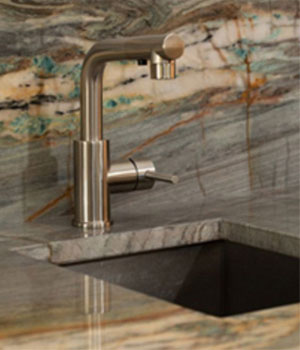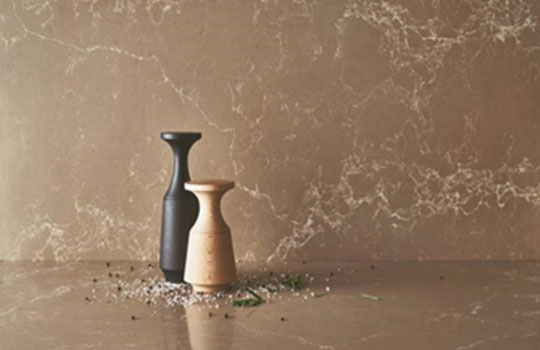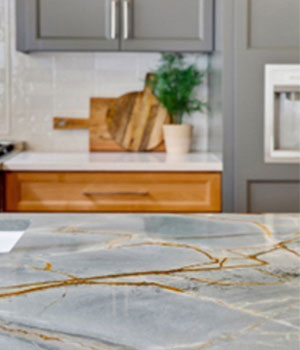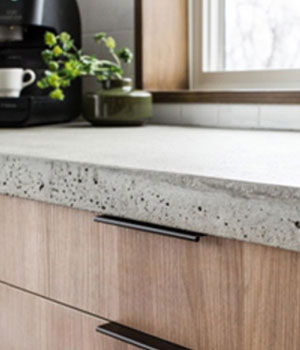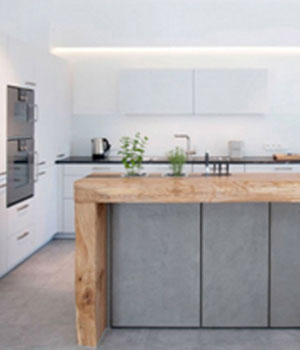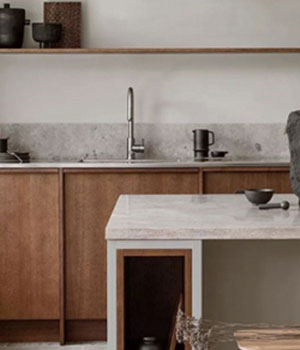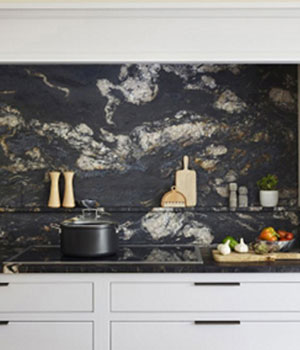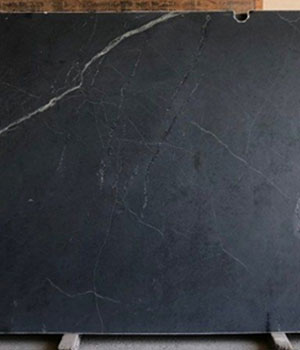Countertop Surfaces Pros and Cons
One of the biggest questions and debates our clients have when starting to design their new kitchen or remodel is - what countertop options should they choose?
They’re one of the first things a person notices when they walk into space, making them a focal point. Without saying much let’s jump and discover the pros and cons of the countertop materials available to help you make the right choice for your kitchen.
01 MARBLE
Marble countertops have an air of elegance to them, but not everyone is a fan. Marble has endless variations because of factors like where it’s sourced, its impurities, patterns, colors and veining. Colors can range from white to black to pink to green.
Pros:
• Heat Resistant
• It’s without a doubt a classy and timeless countertop.
Cons:
• Porous surface – meaning it will stain, etch and acidic liquids will stain permanently.
• It needs to be resealed every 1-2 years.
• Marble countertops are more expensive than other countertops options.
02 QUARTZ
Many people believe that quartz is a man-made material, but that’s not true. Quartz is a natural mineral composed of silicon and oxygen.
he confusion around whether quartz is natural or man-made stems from the fact that quartz, which is the main component in quartz countertops, is a natural mineral, but quartz countertops are engineered by man.
Pros:
• Man – made surface.
• Stain, scratch, heat, acid, and impact resistant.
• Non-porous surface, which means it doesn’t need to be sealed.
• Low maintenance.
Cons:
• It will never be a real thing
03 QUARTZITE
Quartzite is a naturally occurring metamorphic rock. It is created when sandstone is subjected to extreme heat and pressure caused by tectonic plate compression in the crust of the earth. The tops are polished and sealed for beauty and durability.
Pros:
• All natural stone
• Available in a variety of colors and tones.
Cons:
• It needs to be sealed and resealed once a year.
• It is more expensive than quartz
04 CONCRETE
Modern concrete kitchen countertops are no longer cold impersonal slabs of gray concrete. More often, they are warm and gleaming surfaces that are functional and remarkably stylish.
Pros:
• Stain, heat, and water resistant when sealed.
• It has customizable thickness, edge, color and texture.
• It’s not your typical countertop surface.
Cons:
• It requires maintenance.
• It will patina overtime.
• Its expressive weight can tax cabinet frames and floors.
• Repairs are difficult for the do-it-yourselfer.
05 BUTCHER BLOCK
Butcher block is a popular material for countertops. Homeowners choose butcher block for its sleek and crafted appearance that enhances the look of any kitchen. It is made from individual cuts of wood that are joined together with adhesive to create a slab. The resulting product is a distinctive patchwork of wood in alternating colors..
Pros:
• Provides a great workspace for chopping and baking.
• It adds warmth and character.
• These are designed to withstand heavy daily use. They can last for 20 years or longer with regular care and maintenance. By comparison, laminate countertops typically last about 15 years before they need to be replaced or upgraded.
Cons:
• Requires maintenance.
• It scratches and dents.
06 Limestone
Here’s everything you want to know about limestone countertops.
Pros:
• Limestone has a variety of beautiful and natural looking options.
• It has a long lifespan when you care for it properly.
• It’s heat-resistant so even if you place a hot pot down on the counter, it won’t cause damage.
Cons:
• Limestone needs more maintenance and upkeep than other types of stones.
• It’s a soft, porous stone so it can easily scratch and stain if you are not careful.
• Because it’s more sensitive than most, it can be damaged by acidic substances.
Granite is a naturally occurring stone mined from quarries and cut, polished, and fabricated into slabs. For years, granite was the go-to choice for residential countertops, but advances in quartz production have made quartz the most popular and top-rated countertop material.
Pros:
• It comes in a wide range of colors and variations.
• Polished or matte
• It’s a non-porous material after it’s sealed.
• Cost effective.
Cons:
• It absorbs everything if not properly sealed.
08 Soapstone
When looking for a countertop material, you may come across soapstone. Although not as common as other countertop materials, soapstone is one of the most functional countertop materials. It adds to a rustic, elegant and urbane feel, like that of slate or granite.
Pros:
• It’s dense and non-porous.
• Easy to disguise small surface scratches with mineral oil.
Cons:
• Typically found in grey tones with varying veining patterns.
Copyright ©2025 All rights reserved. Maintained by Brand Radix.









